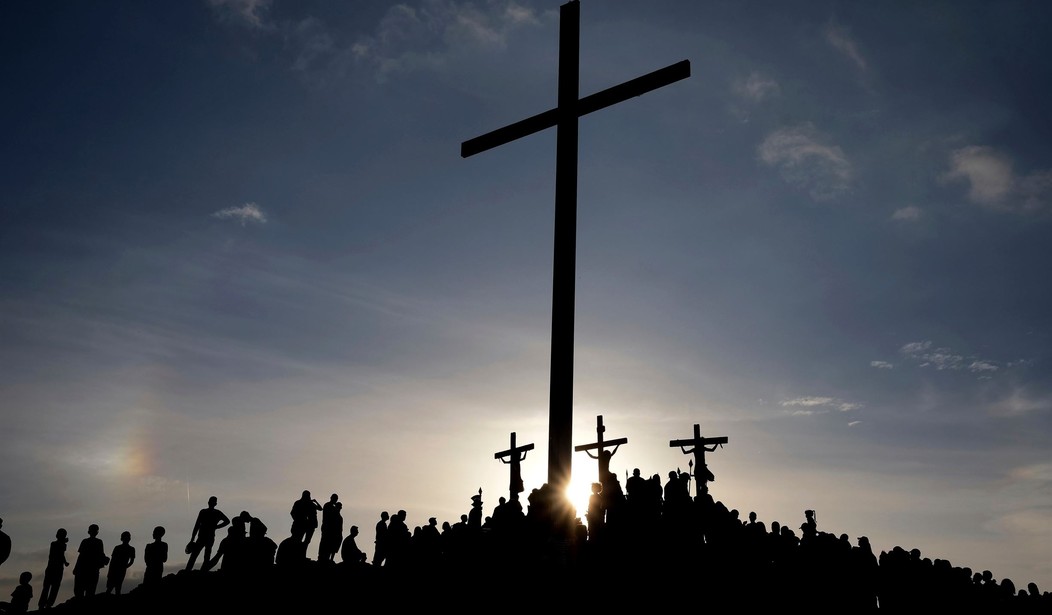As I write this, Christians the world over are preparing to celebrate Easter.
It is during this time, what is referred to as “Holy Week” within the Roman Catholic tradition, that the disciples of Christ commemorate the final days of their Lord’s ministry and his glorious Resurrection from the dead.
Since Christians have been celebrating these events for over 2,000 years, it’s all too easy to lose sight of the lessons for life on Earth that reflection upon them promises to impart. Non-Christians as well can appreciate them, as Jesus’ life, death, and rebirth express certain universal existential experiences, as well as how to live a good life in navigating those experiences.
Consider: As if in the blink of an eye, Jesus goes from sharing a holiday meal—His final meal (“The Last Supper”)—with his closest friends to being arrested by his enemies.
The next day, on Good Friday, he would be tried, mocked, betrayed, humiliated, beaten, and executed.
And all of this happened within less than 24 hours.
In less than 48 hours after his death, on Easter Sunday, Jesus would be alive again.
At one moment, during the early evening of Holy Thursday, Jesus was laughing, drinking, and eating. His heart was heavy knowing what was to come, yet he delighted in celebrating Passover with his closest friends. Not long afterwards, pleasure gave way to pain as Jesus found himself praying fervently, shedding tears and, such was his fear, sweating blood as he begged God the Father to spare him the unimaginably excruciating physical, mental, emotional, and even spiritual agony to which he was about to be subjected. But then terror gave rise to courage and faith as Jesus resolved to complete the plan that God had for the salvation of the human race.
Recommended
From being alive, fully, wonderfully alive, adored by his closest of friends and the masses alike, a source of assurance, hope, and healing for countless numbers of people to dying the most brutal and lonely of deaths a half a day or so later—Jesus suffered what, to an impartial spectator, could only have appeared to be the most dramatic, the most glaring reversal of fortunes.
God-as-Man didn’t only meet death. He endured dying. And he didn’t just die: He underwent a process of dying that was, in a very real sense for most people alive today, inconceivable for its brutality.
Yet in less than 48 hours after he had been abandoned, spat upon, scourged, ridiculed, and nailed to a cross, he was alive again, but in a mode of being qualitatively different from and infinitely superior to that to which he belonged during his Earthly ministry. The fear, dread, and sadness of Good Friday was superseded by the exuberance and joy of Easter Sunday morning. Life gave way to death, which in turn gave rise to Life.
This series of episodes emblematizes in a way that nothing else can the precariousness of human life, the readiness with which, at the proverbial drop of the hat, one set of circumstances can give way to another of a radically and fundamentally different kind. It exhibits as well the inevitability and, critically, the appropriateness of all of the emotions that define the human experience.
The Easter narrative is a peerless illustration of the human condition. For Christians, Jesus, while fully man, isn’t just a man but, rather, God in the flesh, the God-Man who legitimized, who redeemed, human nature by assuming it.
God in choosing to become a human being, chose to experience all of the joys and sorrows, the triumphs and tribulations, that define life here on Earth. In doing so, he bestowed dignity upon our station. Or, rather, God underscored the dignity that already inhered in the human condition. He did so, though, not despite the humanity that he assumed, but by virtue of it. In this respect, not only Christians, but non-Christians too can find in Jesus’s life, death, and rebirth a brilliant exposition of human life as the chain of joys and sorrows, of gains and losses, of beginnings and endings, and of the continual cycle of the seasons, the gamut of human emotions, that we all know it to be.
Yet all can discern in Jesus’s life as well an equally profound prescription for how to live.
As a man, Jesus was fully present within each and every moment he found himself. He passionately embraced every emotion that the circumstances warranted. And he unashamedly, yet with peerless eloquence, expressed himself, his emotions, while seamlessly transitioning from one state to the next as his situation changed.
St. Athanasius had said that God became a man so that men could learn from God how to become like God. We can put this another way while preserving the same point made by St. Athanasius: Only by becoming a human could God teach us how to become fully human.
Happy Easter.

























Join the conversation as a VIP Member